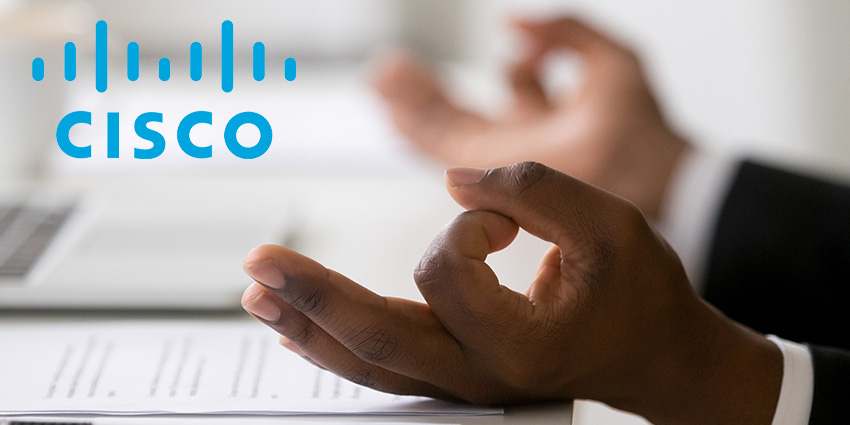During 2020, around 46.6 people in employment did some of their work from home in the UK. While the promise of work-from-home landscapes has been around for some time, the arrival of the COVID-19 pandemic pushed many people to embrace anywhere working faster than expected. For a while, companies operated in panic mode, simply doing their best to survive while they waited for things to eventually go back to normal.
Now we know that the “old normal” is gone, it’s time for all businesses to make the shift towards a world were working from home is as natural as sitting in an office.
So, how do we make this transition?
Investing in the right technology is a good start. But, as many business leaders has discovered, the best WFH policies put the needs of people first. As an innovator in collaboration and communication tools, Cisco is one of the many companies discovering that better outcomes come from happier people. Here’s how Cisco is tackling the wellbeing aspects of a WFH workforce.
Cisco Puts Employees First
Since the onset of COVID-19, it’s not just the need for remote work that’s risen around the world, but the number of mental health issues that people are dealing with too. Between the difficulties of being unable to reach loved ones and an uncertain future, countless staff members have been struggling to maintain a positive outlook.
Bloomberg found that during the pandemics, around 60-70% of any company’s employees could be struggling with their mental health. Indeed, the pandemic was the toughest time in their career for many professionals.
To adapt to the changes of the pandemic, Cisco quickly delivered a work-from-home strategy that allowed team members to connect over the cloud, rather than risking coming into the office. However, during this time, Cisco also implemented various strategies to care for employee wellbeing. For instance, CEO, Chuck Robbins, hosted weekly meetings with announcements from medical experts to keep employees informed.
In May, the Chief People Officer, Fran Katsoudas, also announced a “Day for Me” event where Cisco employees could take a day away from work to focus on their mental health. According to Cisco, wellbeing should always come first. Even outside of days off for mental health, Cisco is offering things like “check-in sessions” to help employees deal with common issues.
Delivering Real Support for Mental Health
As wellbeing issues continued to rise throughout the pandemic, Cisco was among the first to announce that employees should be able to step away from their work and rest as often as needed at home. The focus on good mental health isn’t a new concept for Cisco. In 2018, Robbins sent an email to employees attempting to end the stigma around mental health conditions and encouraging staff to talk about their issues in an environment of support and compassion.
Cisco’s President of Canada, Rola Dagher, also advocated for the importance of good mental health after seeing people in her own close circle struggle with mental health issues.
Over the last few years, more companies have begun to realise that good mental health is a crucial part of wellbeing, as is the ability to find a proper work–life balance. Unfortunately, the sudden shift to working from home has made it difficult for employees to find the right balance between their personal and professional lives. This is particularly true for team members who don’t have dedicated office spaces at home where they can complete tasks.
As pandemic issues continue to have a significant impact on the way that employees feel, Cisco has continued to roll out a range of strategies to assist their employees. In 2020, the company announced a selection of tele-health services for mental health in Canada to assist those who needed help with medical support. Cisco deployed its Webex technology across the CAMH organisation too, helping more than 400 clinicians to access the conferencing tech so that patients everywhere could get the virtual support they needed.
Webex technology has been a significant part of the strategy Cisco has in place to support today’s remote workers. Access to easy-to-use cloud-based technology for video conferencing and collaboration has been a must-have for many businesses in this new world. Cisco notes that part of ensuring wellbeing in the work from home landscape is making sure that team members are properly connected. Evidence of this is clear in the number of meeting minutes Cisco recorded during 2020.
In the months between February 2020 and April 2020, Cisco Webex achieved more than 20 billion monthly meeting minutes, and added a new 15 million users too. Through internal reports and studies, Cisco also revealed that around 62% of the people interviews in a smart working survey were more likely to say they responded positively to the pandemic when using cloud technology.
What is Cisco Doing Next?
Through regular “check in” sessions, group meetings, and a commitment to keeping team members constantly informed, Cisco ensures that remote workers don’t feel isolated when they’re out of the office. Even as the pandemic continues to change the way that we work and live, Cisco is proving itself to be on the cutting edge of the marketplace when it comes to solutions for better healthcare and wellbeing. The company even publishes frequent articles and guidance online.
These content pieces provide people within the Cisco community, as well as those outside of the company to focus on finding the right ways to ensure wellbeing in a landscape of WFH operations. For instance, the Three-Dimensional Cognitive workspace report here offers Cisco’s insights into how companies need to ensure that they’re taking the right steps to engage, motivate, and enable staff and their teams at every possible level.
A long-term focus is something that all companies need to deal with the changes in the workplace driven by the pandemic of 2020. We’ve discovered that there is no return to normal on the horizon, and around 2 out of 3 people say that they would feel uncomfortable returning to work as normal.
Cisco is just one of the many companies that believes in taking a holistic approach to employee care.







